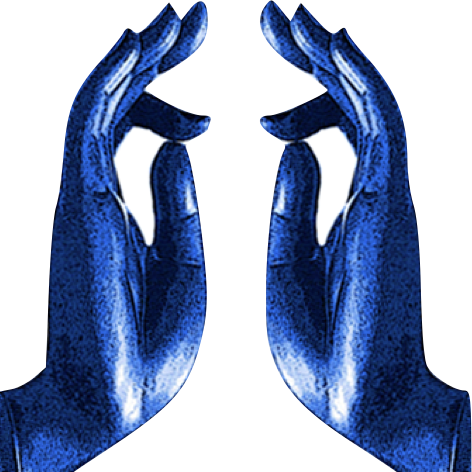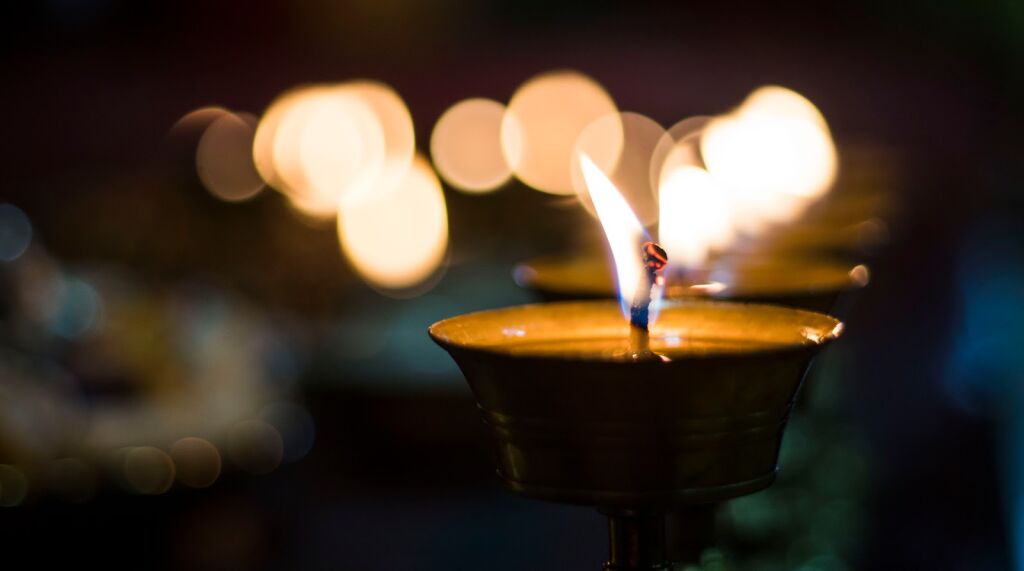Discrimination is something which we use and encounter every day as human beings however it should not be forgotten that it comes from the root word meaning to divide or separate. The teaching of the Buddha is about wholeness or healing or we could day “holiness” in a broad sense, so the Dhamma is clearly in opposition to the divisive and destructive kind of discrimination. In the past few months we have witnessed a world-wide eruption of opposition to discrimination in particular with regards to race or racism. This has become quickly known as the “Black lives Matter” movement.
We need to use our powers of discrimination when making assessments about all manner of things such as the most basic distinction between good and bad however discriminating blindly leads us into more and more suffering and creates great suffering for those we discriminate against. Discrimination against others can be found in religion as well and is often as poisonous as that based on race. When the two come together it is a catastrophic combination. We see this conjunction of discriminations all over the world at present and people will often point to areas of the Middle East as examples but the truth is that this problem is never far from home of we open our eyes to see clearly.
Even among Buddhists and Buddhist groups we can sometimes encounter this phenomenon. Buddhist sectarianism exists and is easily found even in the most unlikely places. The sad truth is that we are very often engaged in judging others and dividing our world into #us# and #them#. In doing so we fail to see the greater truth underlying our existence which the Buddha and his Dhamma illustrate; the truth of interconnectedness and wholeness (Samma).
Here I offer you a passage from the Samyutta Nikaya in which the Buddha tries to get us to see the way in which we evaluate ourselves and others in terms of superior or better, lower or lesser and equal to others. The Buddha points out the error in this kind of discrimination or judgement.
Please read and reflect on his words for your own well-being and that of all other suffering sentient beings. With great metta, Bhante Teja
Thus have I heard. On one occasion the Blessed One was dwelling at Rajagaha in the Bamboo Grove, the Squirrel Sanctuary. Then Sona the householder’s son approached the Blessed One…. The Blessed One then said to Sona the householder’s son:
“Sona, when any ascetics and brahmins, on the basis of form—which is impermanent, suffering, and subject to change—regard themselves thus: ‘I am superior,’ or ‘I am equal,’ or ‘I am inferior,’ what is that due to apart from not seeing things as they really are?
When any ascetics and brahmins, on the basis of feeling … on the basis of perception … on the basis of volitional formations … on the basis of consciousness—which is impermanent, suffering, and subject to change—regard themselves thus: ‘I am superior,’ or ‘I am equal,’ or ‘I am inferior,’ what is that due to apart from not seeing things as they really are?
Sona, when any ascetics and brahmins do not, on the basis of form—which is impermanent, suffering, and subject to change—regard themselves thus: ‘I am superior,’ or ‘I am equal,’ or ‘I am inferior,’ what is that due to apart from seeing things as they really are?
When any ascetics and brahmins do not, on the basis of feeling … on the basis of perception … on the basis of volitional formations … on the basis of consciousness—which is impermanent, suffering, and subject to change—regard themselves thus: ‘I am superior,’ or ‘I am equal,’ or ‘I am inferior,’ what is that due to apart from seeing things as they really are?”
“What do you think, Sona, is form permanent or impermanent?”—“Impermanent, venerable sir.”—“Is what is impermanent suffering or happiness?”—“Suffering, venerable sir.”—“Is what is impermanent, suffering, and subject to change fit to be regarded thus: ‘This is mine, this I am, this is my self’?”—“No, venerable sir.”
“Is feeling permanent or impermanent?… Is perception permanent or impermanent?… Are volitional formations permanent or impermanent?… Is consciousness permanent or impermanent?”—“Impermanent, venerable sir.”—“Is what is impermanent suffering or happiness?”—“Suffering, venerable sir.”—“Is what is impermanent, suffering, and subject to change fit to be regarded thus: ‘This is mine, this I am, this is my self’?”—“No, venerable sir.”
“Therefore, Sona, any kind of form whatsoever, whether past, future, or present, internal or external, gross or subtle, inferior or superior, far or near, all form should be seen as it really is with correct wisdom thus: ‘This is not mine, this I am not, this is not my self.’”
“Any kind of feeling whatsoever … Any kind of perception whatsoever … Any kind of volitional formations whatsoever … Any kind of consciousness whatsoever, whether past, future, or present, internal or external, gross or subtle, inferior or superior, far or near, all consciousness should be seen as it really is with correct wisdom thus: ‘This is not mine, this I am not, this is not my self.’
“Seeing thus, Sona, the instructed noble disciple experiences revulsion towards form, revulsion towards feeling, revulsion towards perception, revulsion towards volitional formations, revulsion towards consciousness. Experiencing revulsion, he becomes dispassionate. Through dispassion his mind is liberated. When it is liberated there comes the knowledge: ‘It’s liberated.’ He understands: ‘Destroyed is birth, the holy life has been lived, what had to be done has been done, there is no more for this state of being.’”
Samyutta Nikaya 22 Connected Discourses on the Aggregates 49. Sona (1)


